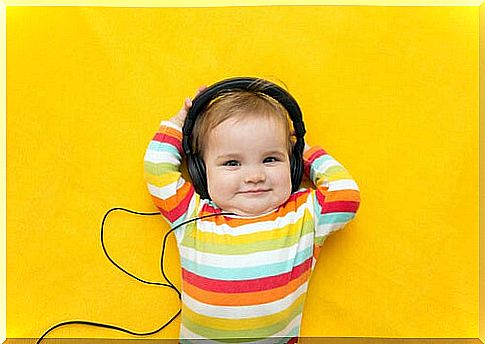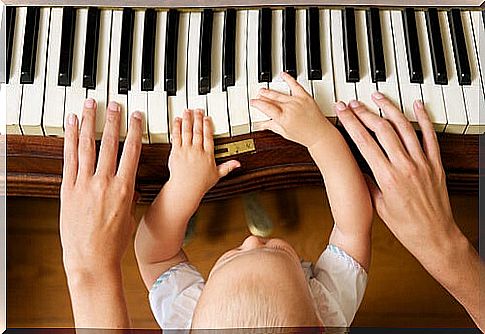Does Music Make Children Smarter?

Have you heard of the “Mozart effect”? Have you ever heard that music makes kids smarter? Do you know where all those beliefs that relate music and intelligence come from? Have you ever stopped to think about whether this statement has a real scientific basis?
There are many circumstances or activities that are likely to help boost intelligence in children. Music is one of them, but not the only one. Many studies have tried to establish a link between learning a musical instrument and intelligence. And that? Those who do not learn to play an instrument are going to “be stupid”?
The Baby Mozart project , the Little Einsteins cartoon series, and dozens of early stimulation programs and projects have led us to believe that music makes children smarter. To achieve this purpose, classical music has been identified as especially beneficial, pointing to the works of Mozart as the reference to follow.

And there you saw – and you see – parents and teachers, even pregnant mothers, playing classical music to their babies, taking their children to music classes whenever possible, as if they had discovered the magic ingredient of intelligence. The big question then is, has all this really worked? Does music really make children smarter?
Well no, or at least not enough to speak of a great benefit. The idea that playing classical music would make children smarter is still controversial in light of a literature in which we find studies that offer conflicting results.
The 1993 study that found that music makes children smarter could not be replicated or allowed for an extension of the experiment. That is to say, what they sneaked into us as a scientific study was not such. Of course, the idea was a spectacular marketing tool, there is no doubt.
Music has many benefits for the child’s brain
With all this I do not mean that music is useless. In fact, music has many benefits for the brain of children and also for the brain of adults. Much research has focused precisely on verifying the effect that music has on the brain.
It seems that music prepares our brains for certain types of thinking. For example, research has found that after listening to classical music, adults can do certain spatial tasks more quickly.
But why does this happen? Apparently the “classical musical pathways” in our brain are similar to the pathways we use for spatial reasoning. Thus, when we listen to classical music, the spatial pathways are already “on” and ready to be used.
This prior preparation facilitates the performance of spatial tasks. But the effect lasts only a short time. Our improved spatial skills fade about an hour after we stop listening to the music.

However, learning to play an instrument can have more lasting effects on spatial reasoning. In several studies, children who took piano lessons for six months improved their ability to work puzzles and solve other spatial tasks by as much as 30 percent. In this sense, the researchers believe that music training creates new pathways in the brain.
Children who study music have also been found to improve auditory processing, as seen on brain scans. This is important because auditory processing skills are critical for language development as well as second language acquisition or better focusing in noisy spaces.
Other research has also found that music can have benefits on cognitive functioning and can also help reduce aggressiveness, increase calmness, reduce stress, and improve mood. However, this does not strictly mean that music makes children smarter.
What makes children truly smart is …
This leaves no doubt that music benefits children and adults in many ways, but being “smart” or improving in school is probably not one of its greatest benefits. Yes, music helps, but not as much as it seems or, at least, as we have been led to believe.
Several studies show that children who attend music classes or receive music education in schools also perform better in intellectual activities. But families and schools that invest in their children’s music education and other arts are likely to differ in many ways from families or schools that don’t. That is probably the true cause of these observed differences.
Several researchers have tried to replicate the findings of modest gains in intelligence, intellectual abilities, and academic performance. However, the results of their randomized trials of music education in children did not find that music makes children smarter, even some of these studies showed losses.

Really, what we have to do is play and talk with our children. Hug them, kiss them, hug them… Sing to them, dance with them, read with them, explore with them… Stimulate their creativity, feed their curiosity…
Does music make children smarter? What difference does it make! If what you really want is for your children to be smarter, spend quality time with them, a lot of time. This is certainly a much more decisive factor than music. Do not fool yourself.









